Dr. Mohammad Tarikul Islam is an Associate Professor of Government and Politics at Jahangirnagar University in Bangladesh. Before joining University in 2014, he was serving United Nations Development Program for seven years in the areas of Local Government and Disaster Management.
As a Visiting Research Fellow at Oxford in 2018, Dr. Islam had accomplished research on the Role of Local Government in Dispute Resolution.
Dr Islam regularly contributes to the South Asia Blog of London School of Economics and Political Science, the Institute of South Asian Studies, National University of Singapore, and the Daily Star (the most popular English dailies of Bangladesh) as local government expert.
In recognition of his persistent academic endeavor on local governance and sustainable rural development, Professor Islam has recently offered by the University of Cambridge to take up post-doctoral (visiting scholar) fellowship.
His forthcoming book with the Routledge on Local Government in Bangladesh: Contemporary Issues and Challenges will be published in July 2020. Dr. Islam is currently researching on Trend of Leadership for localizing SDGs in the context of Bangladesh, India and Nepal.
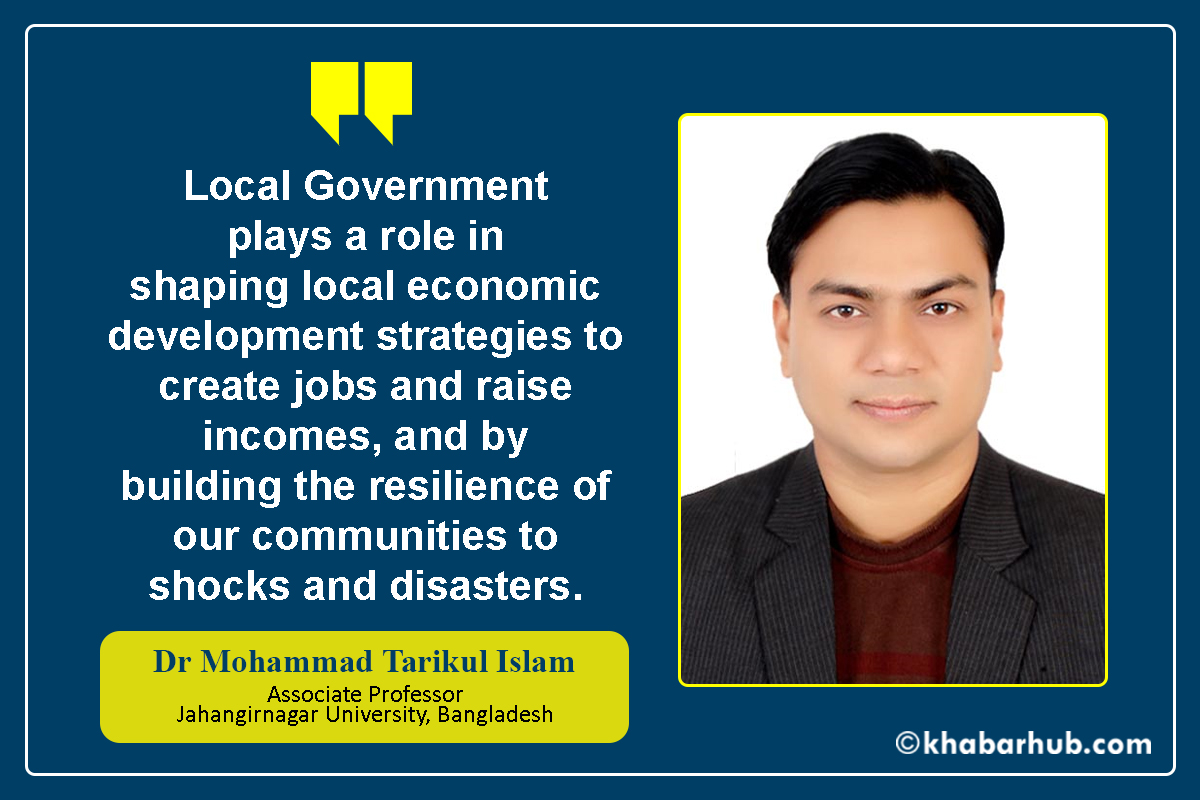
Khabarhub talked to Dr Islam on various issues, particularly SDGs in Bangladesh, among others. Excerpts:
Why SDGs is so important in the context of rural Bangladesh?
Sustainable development can be viewed as an integrated agenda and fundamental principle that endeavors to provide solutions to economic, social and environmental challenges.
The 2030 Agenda emphasizes the need for an inclusive and localized approach to the Sustainable Development Goals (SDGs).
The pledge to leave no one behind is embedded at the heart of the Sustainable Development Goals. Bangladesh’s rural economy, and specifically agriculture, have been powerful drivers of poverty reduction in Bangladesh since 2000.
A strong local government with adequate resources and authority is a must for localization of SDGs and improved governance at the grassroots level.
Investment in and expansion of the rural non-farm enterprises is a parallel priority of the Government of Bangladesh.
Spanning from the day-to-day life to the broader sectors of agriculture and other economic activities, the Bangladesh villages have long entered the phase of a revolution. Localizing SDGs for the sake of qualitative change in the lives and livelihood of the village dwellers (above 62% of the total population in Bangladesh) is essential.
How can local government play an active role in attaining SDGs?
There is growing awareness, recognition and acknowledgment by the international development community and national governments that the local sphere of government is in the best position to facilitate the mobilization of local development stakeholders, notably the NGO and private sectors, local communities, and national and international organizations for attaining inclusive sustainable development within their respective localities.
Participatory grassroots local government is indispensable for delivering SDGs, particularly in poor and marginalized areas.
Local government not only ensures improving access to basic services but provides an effective platform for the poor, peasants, workers and women to participate in the decision making and development process undertaken for them.
Strengthening local government in rural Bangladesh is perhaps the only viable solution by which the government can translate policies into inclusive development and prosperity.
LG can play a role in shaping local economic development strategies to create jobs and raise incomes, and by building the resilience of our communities to shocks and disasters.
The endeavor of the Bangladesh government toward the “localization” of global agendas is progressively expanding to the grassroots level.
It is a testimony of the strength of our collective endeavor. The Local Government (Union Parishad) Act of 2009 strengthens the local government by incorporating the global best practices for direct participation of active citizens in planning and social accountability.
What are the major sustainable development goals where Local Government can contribute to attain?
By and large, SDG 1, 2,5, 6, 13 and 16 are relevant in the context of local government. Let me explain to what extent, above sustainable development goals overlap with the actions of Union Parishad (the lowest tier of local government in Bangladesh).
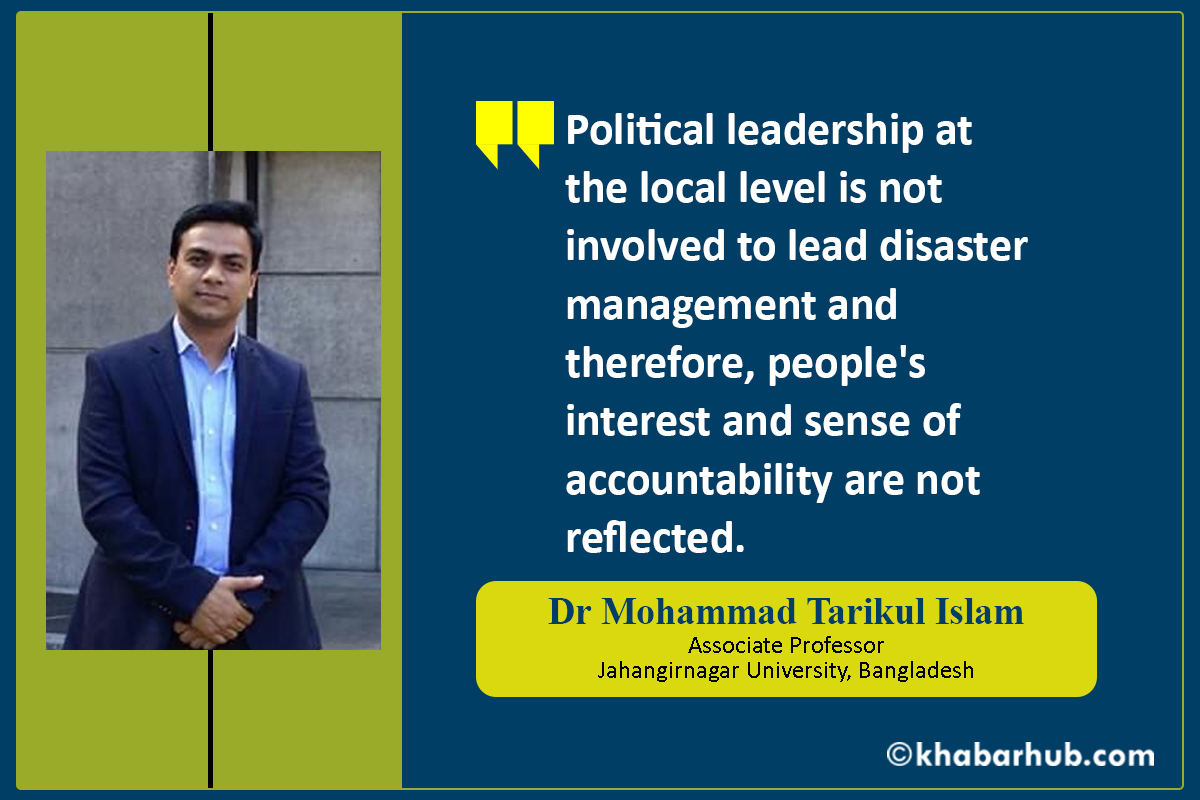
SDG 1 takes a multi-dimensional view of poverty and therefore requires multiple, coordinated responses. Local government (LG) can identify people living in poverty on the ground, and target resources and services to help them escape it.
LG can play a role in shaping local economic development strategies to create jobs and raise incomes, and by building the resilience of our communities to shocks and disasters.
SDG 2 symbolizes that local government can manage natural resources in rural areas, particularly land and water and underpins food security for the surrounding territory.
LG can support agricultural production and local economic growth by strengthening the transport infrastructure and markets to promote local food chains.
Rural local government can manage collective resources and reform land tenure in ways that protect the rights of the poorer groups, including secondary right holders. SDG 5 denotes that, ending violence and discrimination against women and girls and making sure they have equal opportunities in all areas of life.
LG can act as a model for gender equality and the empowerment of women through non-discriminatory service provision to citizens and fair employment practices. LG is on the frontline of identifying and tackling violence and harmful practices against women.
SDG 6 leverages the endeavor of the local government to ensure access to clean water and sanitation. LG has a role to play in improving water quality through environmental protection measures and sustainable solid waste management.
The rural poor have been more marginalized than the urban poor in getting access to health facilities.
SDG 13 denotes that, local and regional governments are often on the frontline of dealing with the effects of climate change. Our capacities to deal with climate-related hazards and natural disasters must be strengthened so that we can protect our communities, particularly the most vulnerable.
SDG 16 goal calls on local government to become more effective and accountable to our citizens. This requires us to tackle corruption and increase public access to information.
For decades, local governments have led the way in experimenting with new forms of participatory decision-making, such as participatory budgeting and planning. Union Parishad, the lowest tier of LG, plays a crucial role in strengthening democracy and sustainable development of the rural communities.
How local government is struggling to attain above sustainable development goals?
On the face of it, people living in rural Bangladesh are more or less affected by contingencies like unemployment, employment injury, sickness, disability, widowhood, old age, death of the principal bread earner of the family and natural disasters.
To ensure women’s equal access and increased participation in political power structures, the Local Government (Union Parishad) Second Amendment Act 1997 of Bangladesh can be seen as a great milestone.
Such problems are very complex and it is difficult to cope with these. Social security is indispensable to cope with any mishap that may fall upon them at any time in rural Bangladesh.
Natural disasters like floods, cyclones, and famine cause many lives and lead to poverty, unemployment, disease, etc. The agricultural sector is not sufficient to generate full-time employment opportunities for people in rural Bangladesh.
Moreover, disease, disabilities and vulnerabilities of the children, women, and aged population have been major causes of concern in rural Bangladesh.
Union Parishad (UP), the lowest tier of local government, has a few programs like food for work, old-age allowance, vulnerable group development, and so on.
All of these programs generate opportunities for the poor, disabled, and vulnerable sections to manage their minimum living requirements. UP also assists old people, widows, divorced women, and disabled freedom fighters by providing fixed benefits.
To ensure women’s equal access and increased participation in political power structures, the Local Government (Union Parishad) Second Amendment Act 1997 of Bangladesh can be seen as a great milestone.
It gave the structural framework for women’s participation in political decision-making. It has also provided an opportunity to bring women to the center of local development and to develop new grassroots level leadership.
But the number of women in elective positions of chairperson and member in the Union Parishad was abysmally low even after three seats were reserved for women candidates because women elected from reserved seats do not get institutional support and are often not included in mainstream activities, and their responsibilities are sometimes not stated clearly.
Shalish is an ancestral informal dispute resolution mechanism where rural people have easy access to justice regardless of wealth, gender, caste, and religion.
Health security for rural people is undermined by the lack of physicians, employees and nurses, misdiagnosis, negligence towards patients, irresponsibility, absenteeism and a lack of professional ethics.
Unfortunately, Shalish is also known for unfair decisions based on local power structures and backward norms, as well as draconian enforcement.
To bridge the gap between informal and formal dispute resolution, Bangladesh redesigned Shalish through the 2006 Village Courts Act.
The village courts aimed to combine the best of Shalish on the one hand (accessibility and effectiveness), and of the formal judicial system on the other (procedural justice).
The 2006 act provided for the establishment of a village court in every UP. Informal dispute resolution through village courts has great potential, but marginal and poor sections of rural society in Bangladesh continue to suffer from lack of access to informal justice. Women, in particular, are struggling to get their voices heard.
Health security for rural people is undermined by the lack of physicians, employees and nurses, misdiagnosis, negligence towards patients, irresponsibility, absenteeism and a lack of professional ethics.
Doctors are deterred from serving in the villages due to the absence of proper capacity development, accommodation, quality education, transportation facilities, and the lack of career prospects. UP also struggles to push for improvements due to the scarcity of resources and dynamic leadership.
The government of Bangladesh has taken several significant steps during the last decades for building up institutional arrangements from national to the union levels for effective and systematic disaster management.
As per the Standing Orders on Disaster, Union Disaster Management Committee (UDMC) is mandated to act as the rural disaster management entity to look after disaster preparedness, mitigation, emergency response, and post-disaster rehabilitation.
Unfortunately, local people particularly vulnerable groups have very limited access to UDMC’s meeting deliberations and decisions.
This largely signifies that the local vulnerable group members have very limited information about the role, mandates, and functioning of the disaster management committee at the ground level.
Political leadership at the local level is not involved to lead disaster management and therefore, people’s interest and sense of accountability are not reflected.
It is the only institution to ensure good governance, development planning, implementation, transparency, and accountability for rural areas in Bangladesh.
The Local Government (UP) Act 2009 introduces the concept of the Standing Committee (SC) in the UP to support the Parishad in ensuring transparency, accountability, and people’s participation in planning and implementing for ensuring better governance and service.
SC helps drive decisions and provide an important means of oversight on the function of governing bodies.
The reasons behind the sluggish performance of SC may be attributed to several factors such as lack of initiatives of UP members, lack of pressure from the common people, lack of political pressure, lack of skills required for planning and implementing development programs at the local level, no specific terms of references of SC and unwillingness on the part of UP Chairman to delegate authority.
Ignorance and reluctance appear as impediments for the effectiveness of the committee and low participation of the members in the committee meeting signposts that fruitful discussions are not held in the committee meetings.
How local government can strengthen SDG related activities surpassing the adverse effects of COVID-19?
As COVID-19 upends lives and livelihoods across the country, the government must stress a range of multilateral solutions to ease the pandemic, while also getting back on track towards achieving SDGs.
If the 2030 global agenda is implemented at the local level on the basis of partnership with people of all segments of society, a massive socio-economic, environmental and ecological development will occur and the targets of SDGs will then be easily achieved.
SDGs localization plan would be a quick-yielding panacea to counteract the Covid-19 fallout both in the medium and long term.
How can we make local government more effective for attaining SDGs?
Acknowledging the vital role of local government in the achievement of the SDGs will enable us to mobilize local stakeholders and to create new partnerships, based on a common understanding of our shared humanity.
We must remember that a critical challenge encountered in the early implementation of the MDGs as opposed to the SDGs was the initial lack of grassroots consultation and support and, most importantly, community ownership.
Local government must have the means and the capacity to improve administration, anticipate demands, plan and implement solutions.
To upscale efforts, we need greater cooperation and national and international coordination mechanisms, as well as enough resources to make this happen.
We will need to ensure that citizens are involved in the decisions that affect their future. “Effective, accountable and transparent institutions” and “responsive, inclusive, participatory and representative decision-making at all levels” require a clear institutional framework, reinforced management and planning capacities, participatory mechanisms and regular financial negotiations between all levels of government and local communities to define priorities and plan of action.
We must strive to foster dialogue with all stakeholders through the Local 2030 initiative and to mobilize a multi-level coalition around localization, which can accelerate our efforts while setting enabling national frameworks that empower local actors to develop and lead their strategies aligned with the SDGs.
Empowering local government has become imperative for putting rural Bangladesh on the track of inclusive development and prosperity. A strong local government with adequate resources and authority is a must for localization of SDGs and improved governance at the grassroots level.


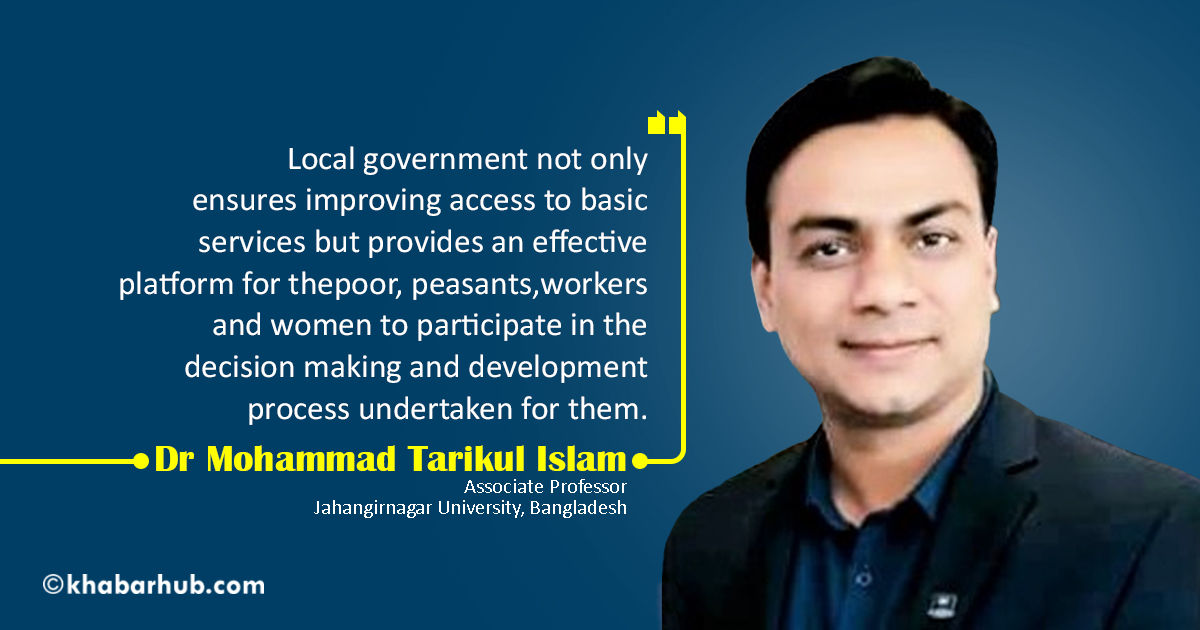


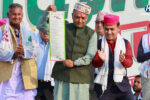
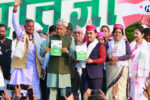

Comment